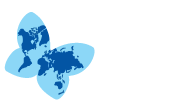About iodine deficiency
An awareness and education campaign
Iodine deficiency may cause goiter, hypothyroidism, alteration in growth, and impaired brain development of the baby. Insufficient iodine intake during pregnancy may lead to brain development issues that may reduce children’s IQ, hindering their learning ability and school performance.
An optimal iodine supply is needed from the start of pregnancy, implying that women should have sufficient iodine stores before they get pregnant.
Iodine deficiency is still a global issue, with middle and low-socio-demographic index countries still bearing a great burden. While iodine deficiency was once widespread, it has been controlled through the worldwide campaign to iodized household salt.


Yet, iodine deficiency is a re-emerging issue due to dietary changes (a declining trend in the consumption of cow’s milk, dairy products, and fish among young people) and a lack of sufficient iodine in the diet.
While some countries with mandatory salt iodization programs are found to be iodine-sufficient, many countries in Europe and beyond lack mandatory salt iodization programs.
Policymakers need to undertake cost-effective interventions to minimize deficiency of essential minerals and thus, protect both general and thyroid health. Monitoring, interventions, and continued salt iodization are crucial to eliminate iodine deficiency in Europe and beyond and protect future generations.


